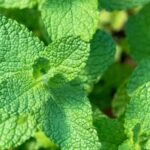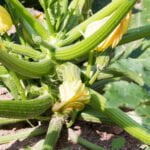Are you wondering how to use manure on vegetable gardens to maximize plant growth and soil health? Using manure as a natural fertilizer can provide numerous benefits for your vegetable garden. In this article, we will explore the various ways in which manure can be used, the different types of manure available, and the process of composting manure.
Additionally, we will discuss the steps for preparing your garden for the application of manure and provide guidelines for proper application methods. By incorporating manure into your gardening routine, you can promote healthy, thriving plants while also improving the overall soil quality.
Using natural fertilizers such as manure is not only beneficial for your vegetable garden but also for the environment. It allows for sustainable and eco-friendly gardening practices that foster a healthier and more productive ecosystem. The introduction of manure into your soil can provide essential nutrients that are necessary for robust plant growth without relying on synthetic chemicals.
Furthermore, by using manure in your vegetable garden, you are contributing to the natural recycling process by utilizing organic materials as a nutrient source instead of relying solely on manufactured fertilizers. This helps reduce waste and contributes to a more sustainable approach to gardening. Now let’s dive deeper into how to effectively incorporate manure into your vegetable garden to reap its full benefits.
Types of Manure
When it comes to using manure in vegetable gardens, there are several types to consider, each with its own unique characteristics and benefits. The most common types of manure used for gardening include cow, chicken, and horse manure. Understanding the differences between these types can help gardeners make informed decisions about which type of manure to use in their vegetable gardens.
Cow manure is known for being a well-balanced fertilizer, containing a good mix of nutrients including nitrogen, phosphorus, and potassium. This makes it a great choice for enriching the soil and promoting healthy plant growth. Chicken manure is high in nitrogen and also contains valuable amounts of phosphorus and potassium.
It can be especially beneficial as a source of quick-release nutrients for vegetables that need an extra boost during the growing season. Horse manure is another popular option due to its high levels of organic matter, making it great for improving soil structure and drainage.
In addition to considering the type of manure, gardeners should also explore composting as a method for preparing manure for use in vegetable gardens. Composting allows manure to break down over time, reducing its odor and potential risk of weed seeds or pathogens. To successfully compost manure for vegetable gardens, it’s important to create balanced layers of carbon-rich materials such as straw or dried leaves with the nitrogen-rich manure.
This will promote decomposition and create a nutrient-rich compost that can be safely applied to the garden. When using composted manure in vegetable gardens, gardeners can rest assured that they are providing their plants with a safe and beneficial source of natural fertilizer.
Once the appropriate type of manure has been selected and prepared through composting if necessary, it’s important to consider the best methods for application in vegetable gardens. Manure can be directly incorporated into the soil before planting or used as a top dressing around established plants.
It’s crucial to properly mix the manure with the soil to avoid concentration that may harm plants or cause uneven growth. Gardeners should also consider the timing and frequency of application based on their specific crops’ needs and growing seasons.
Overall, understanding how to use different types of manures effectively in vegetable gardens is crucial for maximizing their benefits while avoiding common pitfalls such as overuse or improper application methods. By choosing the right type of manure, properly composting it when necessary, and applying it thoughtfully based on plant needs and soil conditions, gardeners can harness its natural fertilizing power for healthy and thriving crops.
Composting Manure
Understanding the Process
Composting manure is a natural and effective way to utilize animal waste as a fertilizer for vegetable gardens. The process involves breaking down the organic matter in manure through microbial activity, resulting in a nutrient-rich soil amendment. This helps to improve soil structure and fertility, leading to healthier plant growth and higher yields. Composting also helps reduce the risk of potential pathogens in raw manure, making it safer to use in vegetable gardens.
Best Practices for Composting
To successfully compost manure for use in vegetable gardens, it’s important to follow some best practices. First, ensure that the manure is combined with a carbon source such as straw or leaves to create a balanced ratio of carbon and nitrogen for efficient decomposition.
It’s essential to maintain proper moisture levels, aerate the compost regularly, and monitor the temperature to promote the breakdown of organic material. Composting bins or piles should be turned periodically to ensure even decomposition and prevent unpleasant odors.
Testing and Application
After the composting process is complete, it’s crucial to test the finished product before applying it to vegetable gardens. Conducting a soil test can help determine if additional nutrients are needed and provide valuable information on how to properly amend the soil with composted manure.
Once the compost is deemed suitable for use, it can be applied directly to garden beds or mixed into existing soil. Proper application techniques will help maximize the benefits of using composted manure in vegetable gardens while minimizing any potential drawbacks.
Preparing the Garden
When it comes to preparing your vegetable garden for the application of manure, there are several important steps to take in order to ensure the best results for your plants. Here are some key actions to consider:
1. Soil Testing: Before adding manure to your vegetable garden, it’s essential to conduct a soil test. This will help you determine the nutrient levels and pH balance of your soil, allowing you to make informed decisions about the type and amount of manure to use. You can purchase DIY soil testing kits or send samples to a professional lab for analysis.
2. Choosing the Right Manure: Once you have a clear understanding of your soil’s needs, you can select the most appropriate type of manure for your vegetable garden. Cow, chicken, and horse manure are among the most common options available. Each type has unique characteristics and benefits, so it’s important to choose one that aligns with your garden’s specific requirements.
3. Mixing Manure with Soil: Properly incorporating manure into the soil is crucial for maximizing its benefits and preventing potential issues like nitrogen burn. It’s recommended to mix well-rotted manure into the soil at least four weeks before planting. For clay soils, adding organic matter like composted manure can improve drainage and soil structure.
By following these steps and carefully assessing your garden’s needs, you can ensure that the application of manure will contribute positively to the health and productivity of your vegetable plants.
Manure is a valuable natural fertilizer that can greatly benefit vegetable gardens when used correctly. By understanding how to use manure on vegetable gardens in a responsible manner, gardeners can support healthy plant growth while contributing to long-term soil health and sustainability. Through proper preparation and application methods, as well as avoiding common mistakes, incorporating manure into your gardening routine can lead to thriving plants and bountiful harvests for years to come.
Application Methods
When it comes to using manure on vegetable gardens, there are several methods for application. One common method is to spread the manure directly onto the soil and then incorporate it through tilling. This allows for even distribution of the manure and ensures that it is properly mixed into the soil.
Another method is top dressing, where the manure is spread on top of the soil without mixing it in. This can be effective for certain types of crops and can also help improve soil structure over time.
It is important to consider timing and frequency when applying manure to vegetable gardens. The best time to apply manure is in the fall after harvesting or in early spring before planting. This allows for sufficient time for the manure to decompose and release its nutrients into the soil. As for frequency, a general guideline is to apply manure every 1-2 years, as overapplication can lead to an imbalance of nutrients in the soil.
Manure can also be used to create “manure tea,” which is a liquid fertilizer made by soaking a bag of manure in water for a few days. The resulting mixture can then be diluted with water and applied directly to plants as a foliar spray or soil drench. Manure tea provides an easy way to deliver nutrients directly to plants and can be particularly beneficial for fast-growing vegetables during their growth stages.
| Application Method | Description |
|---|---|
| Direct Spreading and Tilling | Even distribution of manure by spreading on soil and incorporating through tilling. |
| Top Dressing | Spreading manure on top of the soil without mixing it in, which can improve soil structure over time. |
| Manure Tea | Making a liquid fertilizer by soaking manure in water, diluting it, and applying it as a foliar spray or soil drench. |
Manure Tea
To make manure tea, you will need to start with well-aged manure from cows, horses, or chickens. Fresh manure should be avoided as it can contain harmful pathogens and may burn plants. Fill a permeable bag or container with the manure and submerge it in a large drum or bucket of water.
Allow the mixture to steep for several days, stirring occasionally to aerate the tea. Once the water has turned a rich, dark color and has a mild earthy odor, the manure tea is ready to use.
When applying manure tea to your vegetable garden, dilute it with water in a 1:5 or 1:10 ratio (1 part manure tea to 5-10 parts water). This will ensure that the concentration of nutrients is suitable for your plants and will prevent any potential burning of roots.
Manure tea can be applied directly to the soil around plants or used as a foliar spray on the leaves. It is best to apply manure tea in the early morning or late afternoon to minimize evaporation and maximize absorption by the plants.
Using manure tea in your vegetable garden can significantly improve soil quality and enhance plant growth. The nutrients present in manure tea, such as nitrogen, phosphorus, potassium, and micronutrients, can help boost crop yields and overall plant health. Additionally, this natural fertilizer encourages beneficial microbial activity in the soil, promoting better nutrient uptake by plants. By incorporating manure tea into your gardening routine, you can foster a thriving and sustainable vegetable garden.
| Manure Tea Benefits | Application Tips |
|---|---|
| Enhances soil fertility | Dilute with water before application |
| Promotes healthy plant growth | Apply in early morning or late afternoon |
| Boosts crop yields | Use as foliar spray or soil drench |
Common Mistakes to Avoid
When using manure in vegetable gardens, there are several common mistakes that gardeners should be mindful of in order to maximize the benefits of this natural fertilizer. By being aware of these mistakes, gardeners can ensure that they are using manure effectively and responsibly.
1. Overuse of Manure:
One common mistake when using manure on vegetable gardens is overapplying it. While manure is a valuable source of nutrients for plants, using too much can lead to an imbalance in the soil, resulting in excessive levels of certain nutrients and potential harm to plants. To avoid overuse, it’s important for gardeners to follow recommended application rates based on the type of vegetables being grown and the specific nutrient needs of the soil.
2. Improper Application:
Another mistake to avoid is improper application of manure. This includes not properly mixing the manure with the soil or applying it too close to the plant stems. Improper application can lead to issues such as burning plants or attracting unwanted pests. Gardeners should take care to evenly mix the manure into the soil before planting and ensure that it is spread out evenly across the entire garden area.
3. Using Uncomposted Manure:
Using uncomposted or fresh manure directly on vegetable gardens can also be a mistake, as it may contain harmful pathogens and weed seeds that can negatively impact plant growth. It’s important to compost manure before applying it to vegetable gardens, as composting helps break down any harmful elements and ensures that the nutrients are readily available for plants without risking their health.
By being mindful of these common mistakes and following best practices for using manure on vegetable gardens, gardeners can harness the full benefits of this natural fertilizer while promoting healthy, thriving plants.
The Benefits of Using Manure
Manure is a valuable natural fertilizer that can provide numerous benefits to vegetable gardens. By incorporating manure into your gardening practices, you are not only enriching the soil with essential nutrients but also promoting sustainable and eco-friendly cultivation. The use of manure in vegetable gardens aligns with the principles of organic farming, as it avoids the use of synthetic chemicals and promotes overall soil health.
There are various types of manure that can be used in vegetable gardens, including cow, chicken, and horse manure. Each type has its own unique characteristics and benefits. For example, cow manure is known for its high nitrogen content, making it an excellent choice for leafy vegetables like lettuce and spinach.
On the other hand, chicken manure is rich in phosphorus and potassium, which are vital for root development in plants. Understanding the differences between these types of manure can help gardeners make informed decisions when choosing the right option for their specific crops.
Composting manure is an important step in preparing it for use in vegetable gardens. This process not only helps eliminate any harmful pathogens or weed seeds present in raw manure but also accelerates the breakdown of organic matter to release nutrients slowly over time.
To compost manure effectively, it is crucial to maintain the proper balance of carbon and nitrogen, as well as provide adequate aeration and moisture levels. Following best practices for composting will ensure that the resulting material is safe and beneficial for your garden.
When exploring how to use manure on vegetable gardens, it is essential to consider the long-term benefits of incorporating this natural fertilizer into your gardening routine. The nutrient-rich composition of well-composted manure can improve soil structure, water retention, and overall fertility over time.
Additionally, using manure in vegetable gardens reduces reliance on chemical fertilizers, which can have adverse effects on soil health and surrounding ecosystems. By harnessing the power of natural fertilization through manure, gardeners can create thriving organic environments that support healthy plant growth while minimizing environmental impact.
Conclusion
In conclusion, using manure in vegetable gardens offers numerous benefits that contribute to the overall health and productivity of the plants. By incorporating natural fertilizers like manure, gardeners can enhance the soil’s nutrient content, improve soil structure, and promote healthy plant growth without relying on synthetic chemicals. This method aligns with sustainable gardening practices and supports environmentally-friendly approaches to cultivating vegetables.
When considering how to use manure on vegetable gardens, it’s important to understand the different types of manure available. Each type has unique characteristics and benefits, making it essential for gardeners to choose the most suitable option for their specific needs. Additionally, proper composting of manure and careful preparation of the garden are crucial steps in ensuring the successful application of manure. By following these steps, gardeners can maximize the benefits of using manure while minimizing any potential risks.
In addition to traditional methods of applying manure to vegetable gardens, gardeners can also explore the concept of manure tea as a natural fertilizer. This simple yet effective approach provides an alternative way to harness the nutrients present in manure while minimizing direct contact with plants. Overall, by integrating these practices into their gardening routine, individuals can experience the long-term positive impact on soil health and plant growth that comes from using manure in vegetable gardens.
Frequently Asked Questions
When Should I Put Manure on My Vegetable Garden?
Manure can be applied to the vegetable garden in the fall after the harvest or in the spring before planting. It’s important to make sure that the manure is well-rotted to avoid burning the plants.
How Do You Apply Manure to Vegetables?
When applying manure to vegetables, it’s important to spread a layer of well-rotted manure over the soil and then incorporate it into the top few inches with a garden fork or tiller. It’s best to do this several weeks before planting to allow any excess nutrients to leach out.
What Vegetables Don’t Like Manure?
Some vegetables are sensitive to high levels of nitrogen found in fresh manure, such as root crops like carrots, potatoes, and beets. These vegetables may experience excessive foliage growth at the expense of root development when exposed to high levels of nitrogen from fresh manure. It’s best to use well-rotted manure or compost for these crops instead.

If you’re looking to get into vegetable gardening, or are just looking for some tips on how to make your current garden better, then you’ve come to the right place! My name is Ethel and I have been gardening for years. In this blog, I’m going to share with you some of my best tips on how to create a successful vegetable garden.





